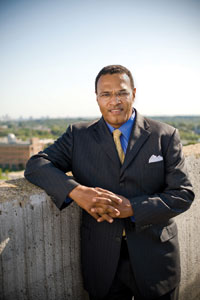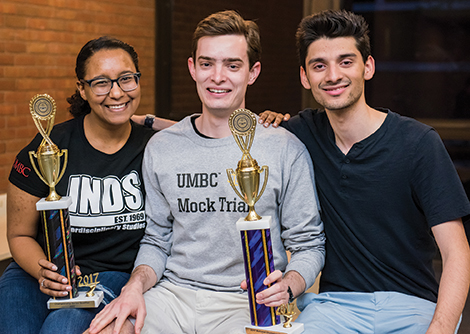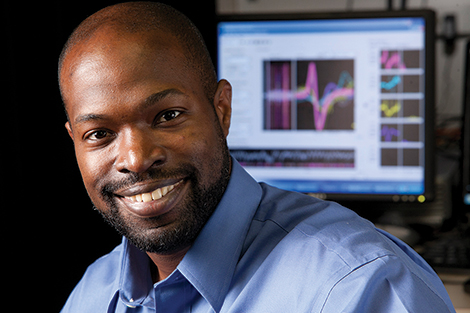UMBC President Freeman A. Hrabowski, III, takes your questions.
Q: With the success and momentum from events around the 50th celebration, what are the best lessons learned in how to engage and develop new generations of UMBC alumni for the next 50 years?
— Nate Dissmeyer ’07, information systems management
A: The number one lesson comes from the faces of the alumni who came back. So many were surprised to see how UMBC has developed and evolved over the years. The lesson was that we have to find ways of getting graduates back to campus—not simply to see the growing beauty of the physical setting, but, even more important, to talk with students and faculty and staff; to see other alumni; and to see how much this setting represents community and family in the best senses of those words.
During the celebration, alumni remembered when they were younger. Whatever the age, there’s that sense of nostalgia, and it’s also satisfying to connect to one’s alma mater. Some people were surprised to hear us saying anybody who graduated in the first 50 years would be considered a part of the founding group. Well, whether one graduated in the ’70s or the ’90s or in 2010, all are part of that founding group because we forget how short a period 50 years really is.
The fact is that years from now, when we are 150 years old, people will look back at that first 50 years and say, “Those people helped to found that place.” They had faith that the place was going to be better and better and better. And so there’s a sense of pride people can take in being a part of the foundation of the university. It’s not every university that can talk about its founding graduates or founding alumni and founding faculty and staff, but we are fortunate in that way.
So our graduates have helped to create the institution. The university is only as impressive as its alumni. Universities are fortunate to have superb faculty and staff, but the fact is alumni are always part of the university. That’s the most important message from them—that this is always their university, and will always be their alma mater.
Q: Knowing your intense schedule and commitment to our university, when do you get the time to just be Freeman Hrabowski? How do you kick back and relax?
— Ron Pettie ’82, English
A: This is going to sound really nerdy: Studying French. Literally reading French literature and philosophy, talking with students on campus in French, and having them correct my pronunciation is as relaxing as anything I could possibly do because I’m learning. I’m always learning new vocabulary and new structures of sentences and new ideas. I’ll give you just one idea that will give you the point. I’m studying the differences between American culture and French culture. One of the differences is the French understand that you will cut them off before you finish a sentence. There’s a rhythm to it, where having an exciting conversation means you never finish your sentence. Somebody gets the point, and they just cut you off, and it goes back and forth.
In America, we think it’s disrespectful to cut someone off, and the French would use the word “boredom.” They think it’s rather boring that we wait until one person finishes talking. These are things that we would not think about without having a chance to study those differences. The reason I enjoy relaxing that way is that I enjoy learning new things, and I enjoy students seeing that there’s so much I don’t know—and that they can correct me! I think that’s a lot of fun. It really is.
The other thing I would say is I enjoy reading in different centuries. I particularly like the pace of the 19th century, whether it’s British or French literature. I love studying different centuries, getting away from the fast pace, being able to slow down and think about an envelope and the smell of a letter. I need that. I need the slowing down process. I also meditate. I both pray and meditate. Very different things, but people don’t know it and I’m not ashamed to say it. I pray all day for all of us. I think we need it.
And finally, I will tell you the most fun thing I’ve done is working with children. I love going to third or fourth grade and sitting on the floor working on math problems with children. I really enjoy that. I enjoy kids because they will always say, “Please don’t go.” You go to leave, and they take your heart. I love it. I’m still thinking about Lakeland Elementary when the little girl said, “Please don’t go.” I told Greg [Simmons ’04, vice president of institutional advancement], “I just may stay.” It’s that innocence of a child that gives me such hope. It really does.
To send a question to President Hrabowski, visit umbc.edu.
Tags: Spring 2017




